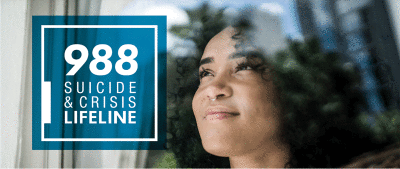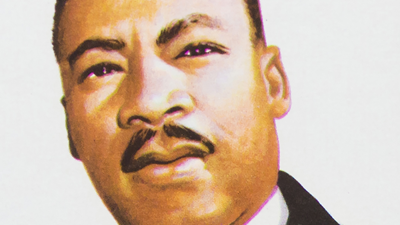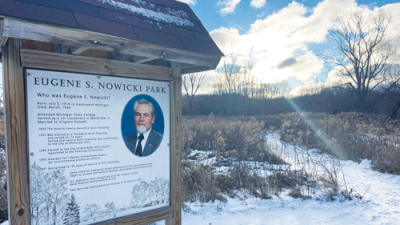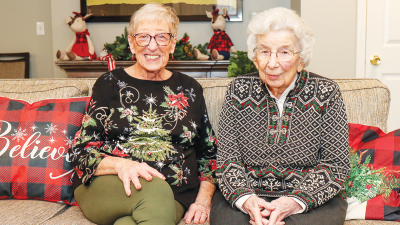METRO DETROIT — Those experiencing a substance use crisis, or emotional or mental health-related distress, can now call a three-digit number to get help.
On July 16, Michigan joined the nation in transitioning to a 988 phone number, allowing people to call, text or chat with the crisis and suicide lifeline, which operates through the existing National Suicide Prevention Lifeline’s network of more than 200 locally operated and funded crisis centers across the country. The 988 dialing code does not replace the National Suicide Prevention Lifeline — 800-273-TALK (8255) — or other locally operated crisis lines, like the Michigan Crisis and Access Line.
Instead, officials said, it serves as a universal entry point to connect individuals in need to trained crisis counselors who can help.
When the 988 dialing code went live, the target population for the line expanded. Now, anyone experiencing mental health-related distress, thoughts of suicide, substance use crisis and emotional distress can call 988. There are also specialized services available for veterans, LGBTQ individuals and other groups.
Dr. Debra Pinals, the medical director of behavioral health and forensic programs for the Michigan Department of Health and Human Services, said the crisis is defined by the caller.
“By providing an easy-to-remember number, we are making help more accessible and strengthening support to those in need,” she said in a statement.
In Michigan, the Michigan Crisis and Access Line is responsible for answering 988 calls in most areas. In Macomb and Kent counties, Macomb County Community Mental Health and Network 180 will answer 988 calls with the Michigan Crisis and Access Line providing backup call coverage.
In all cases, trained counselors are available 24/7 to listen to the caller’s problems, assess their needs and provide support by connecting them with resources. They can also alert local emergency crisis teams, if necessary.
“When a Michigan resident calls 988, they will get a specially trained individual that has a background in providing that crisis phone support,” said Krista Hausermann, crisis and stabilization services section manager for the Michigan Department of Health and Human Services. “They have the ability to go through a crisis assessment with the caller to determine risk level, and they focus very strongly on developing a positive relationship with the caller to help the caller work through whatever situation is going on. They can develop a safety plan and even refer them to any other care that they might need.”
When you provide phone crisis support and you provide it well, Hausermann said, about 70%-80% of the callers get their needs met through that call.
“They may get a referral past that, but they really don’t need other crisis support except that call,” she said.
Prior to the implementation of 988, Hausermann admitted, the state’s behavioral health landscape was “pretty confusing” for people in crisis.
“We had a number of different crisis lines prior, and people really weren’t sure how to get the help that they needed,” she said.
Michigan Department of Health and Human Services Director Elizabeth Hertel said the 988 number is easier to remember and provides another step toward strengthening and transforming crisis care and mental health services in Michigan.
“This universal number means, no matter where you live or call from, you can reach a trained crisis counselor who can help,” Hertel said in a statement.
 Publication select ▼
Publication select ▼















